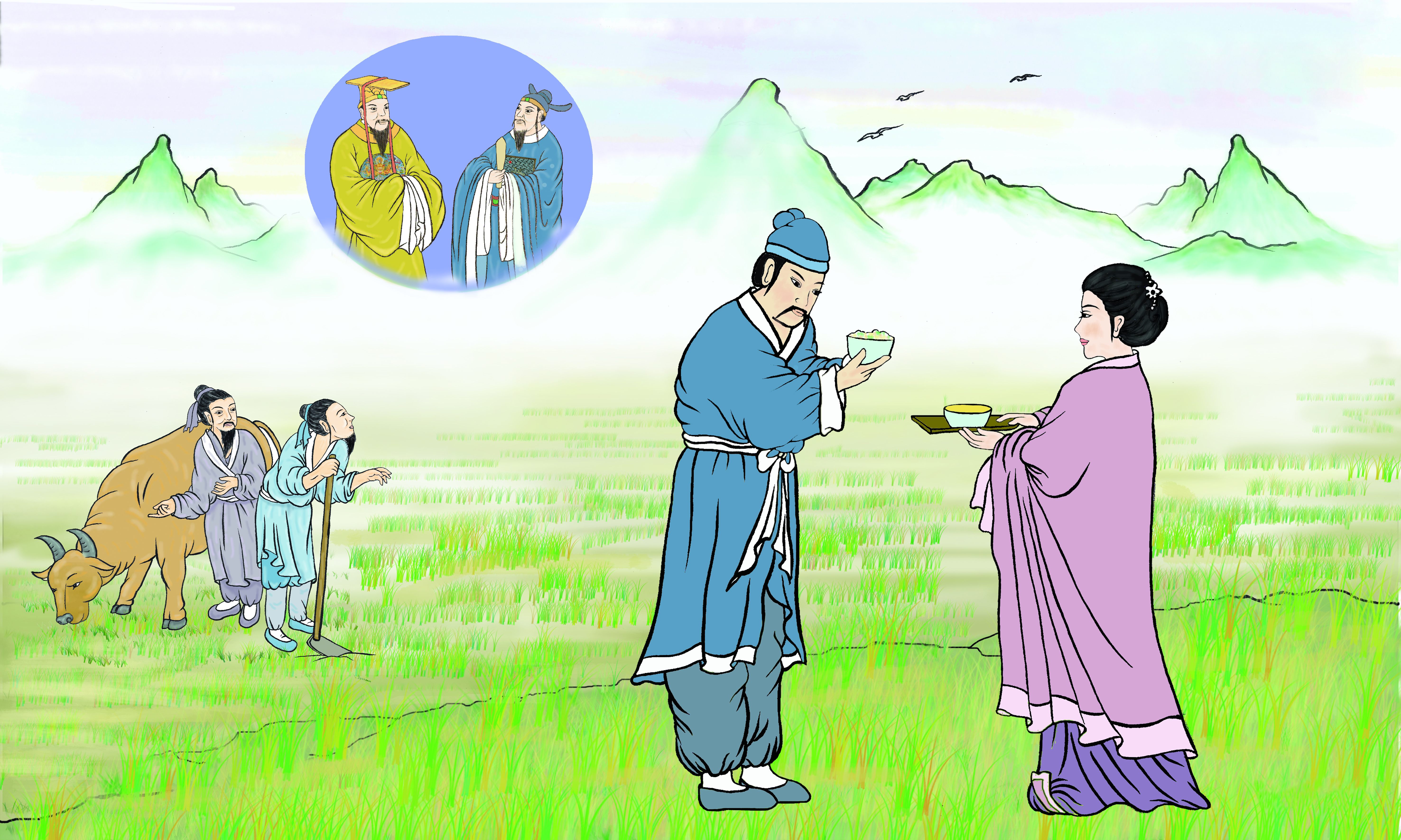By Jade Pearce,
The Three Character Classic, or San Zi Jing (三字经), is the best known classic Chinese text for children. Written by Wang Yinlian (1223–1296) during the Song Dynasty, it has been memorised by generations of Chinese, both young and old.
Confucius Quote:
高曾祖,父而身。 身而子,子而孙。 自子孙,至元曾。 乃九族,而之伦。
父子恩,夫妇从。 兄则友,弟则恭。 长幼序,友与朋。君则敬,臣则忠。
此十义,人所同。
Great great grandfather, great grandfather, grandfather, father and self,
self and son, son and grandson,
from son and grandson, on to great grandson and great great grandson.
These are the nine agnates, constituting the kinships of man.
Affection between father and child, harmony between husband and wife,
friendliness on the part of elder brothers, respectfulness on the part of younger brothers,
precedence between elders and youngers, as between friend and friend,
respect on the part of the sovereign, loyalty on the part of the subject.
These ten obligations are common to all men.
However, after the Cultural Revolution in China, the Three Character Classic was banned and eventually fell into disuse. In this series, we revive and review this great Chinese classic, drawing ancient lessons of wisdom for our modern-day lives.
Filial piety is the first among a hundred good deeds.
Ancient Chinese saying
In the Three Character Classic’s final section on numbers, we cover the association of the numbers nine and ten in ancient Chinese culture.
The number nine is associated with the nine agnates, or nine generations in a family. Children are taught the proper way to address all the generations in their family, from one’s great-great-grandfather to great-great-grandchild.
The number ten, on the other hand, is a little more advanced. It is associated with the ten moral obligations of Confucianism, and from a young age children learn the many responsibilities they will have to manage throughout life. Starting from being a filial child to a good employer, it reminds them of the various relationships they will have to juggle, and the right way to do so.
Filial Piety: the Foundation of All Virtues
Confucianism believes that amongst all human virtues, filial piety is the most important. It is the virtue from which all other virtues will flourish. As mentioned in an ancient saying, “Filial piety is the first among a hundred good deeds.”
This may sound inconceivable, but that is because the ancients had extremely high standards for filial piety. Filial piety was more than just “providing food and money to the parents”. That, according to the Confucian philosopher Zengzi, was “the lowest level of filial piety”. The next level was being respectful and acting responsibly to bring honour to one’s parents, and the highest level was to have no omissions and to spread the teaching of kindness.
From this, it is clear that many virtues must be cultivated in order to reach the higher levels of filial piety. One has to be tolerant, compassionate, trustworthy, humble, righteous and much more, just to achieve the middle level of piety.
Through constant practice, one learns to cultivate these virtues, which he then applies to other roles and responsibilities. When a filial person applies his trustworthiness to serving his emperor, he becomes a loyal subject. When he applies compassion to his subjects, he becomes a kind official.
This is why filial piety and family harmony are considered key to peace in the country. As the ancient Chinese saying goes, “Family is rectified and thus, the state is stable.”
Affection for Children: Providing the Right Teaching
While children should be filial to their parents, the extent of their filial piety also depends greatly on their parents’ teaching. The Three Character Classic speaks of affection for one’s children, but this affection is not blind and unprincipled. True affection necessitates educating one’s children as well.
In ancient China, the first priority in a child’s education was not reading or counting, but learning how to behave. “Learning knowledge is not the root of teaching,” writes the Analects of Confucius. “What comes first is cultivating virtue such as filial piety and brotherly love, compassion, respect and sincerity. If time permits, he may learn some knowledge afterwards.”
According to Yan’s Family Rules, ancient sages and emperors strictly ensured that their children were well-taught in the virtues of piety, kindness, etiquette and righteousness. Under their parents’ guidance, children were taught to obey and to recognise right from wrong.
After a few years of disciplining, the parents no longer needed to use punishment. The parents continued to have love and affection for their children, while being respected by their children.
More and more commonly, however, parents love their children without educating them. Instead of disciplining the child’s bad behaviour, they may choose to ignore it or even positively reinforce it. As the child grows up, he believes that this is the right way to behave. His arrogance has already become deep rooted.
By that time, even if the parents beat their child, they cannot establish filial respect. The child’s anger will gradually grow until he hates his parents, and these children become immoral adults.
There is a story in ancient China about a mother who spoiled her only son rotten, praising his bad behaviour of bullying other children and stealing. As the child grew up, his petty deeds became serious crimes like arson and robbery. When he was finally sentenced to death for his crimes, the angry son berated his weeping mother for not teaching him well. Both son and mother died tragic deaths – he by beheading, and she of a broken heart.
Husband and Wife: Treating Each Other With Respect
Having a harmonious marriage is also considered an essential part of family well-being. The foundation of a harmonious marriage is great mutual respect and honour of each other, as described by the Chinese idiom, “treating each other with the same respect due to a guest”.
In a story from the Spring and Autumn Period (770–476 B.C.), a minister from the state of Jin noticed a farmer named Xi Que working in the field. His wife happened to bring him lunch, and although the food was nothing fancy, she offered it to the farmer very respectfully with two hands.
In response, the farmer accepted the food with great respect, and while he ate his wife stood beside him waiting politely.
Moved by what he saw, the minister went up to speak to them. When he went back to the capital, he reported the incident to the King of Jin. “They were treating each other with great respect, as if they were each other’s guest,” he said. “Such mutual respect is a key manifestation of virtue, and these people are the best candidates for managing the country’s affairs.”
Following his minister’s advice, the King appointed Xi Que an official, and he served with bravery, wisdom, and great merit.
Many of China’s great emperors, like Emperor Ming of Han and Emperor Taizong of Tang, shared exemplary relationships with their empresses. They greatly respected their wives and often sought their advice and counsel. Their empresses, in turn, were respectful and understanding of their husbands, offering their advice with kindness and humility.
Between Friends: the Story of Guan Zhong and Bao Shuya
“The gentleman supports and praises others’ achievements and strengths,” said Confucius in the Analects of Confucius. “He does not laugh at others’ misfortunes.”
The same can be said for friends, whom we should trust and support. A classic example of friendship is the story of Guan Zhong (管仲) and Bao Shuya (鲍叔牙), who lived during the Spring and Autumn Period. The two men started off as business partners and were very good friends.
Although Guan always took a greater share of the profit, Bao never took it to heart as he knew Guan’s family was poor. When Guan made a huge business mistake, Bao did not think he was stupid but that he was just unlucky. When Guan ran away from fights, Bao did not think him cowardly, but that he needed to stay alive to take care of his elderly mother.
The gentleman supports and praises others’ achievements and strengths. He does not laugh at others’ misfortunes.
Guan was greatly indebted to Bao for his understanding and support. He said of Bao, “My parents gave me life, but Bao Shuya is the person who truly understands me.” Bao endeavoured to identify with Guan’s situation and tolerated his mistakes like a true friend.
Employer and Employee: Respect Earns Loyalty
A bad boss is the one of the number one reasons why people quit their jobs. According to a LinkedIn survey, 41 percent reported poor leadership as the reason for quitting their jobs.
In the Three Character Classic, respect on the part of the sovereign is a necessary duty. The same can be said of employers; when employees feel understood, respected, and appreciated by their boss, they are more likely to be loyal and hard workers.
A good example is the famous general Zhong Shiheng of the Northern Song Dynasty.
















